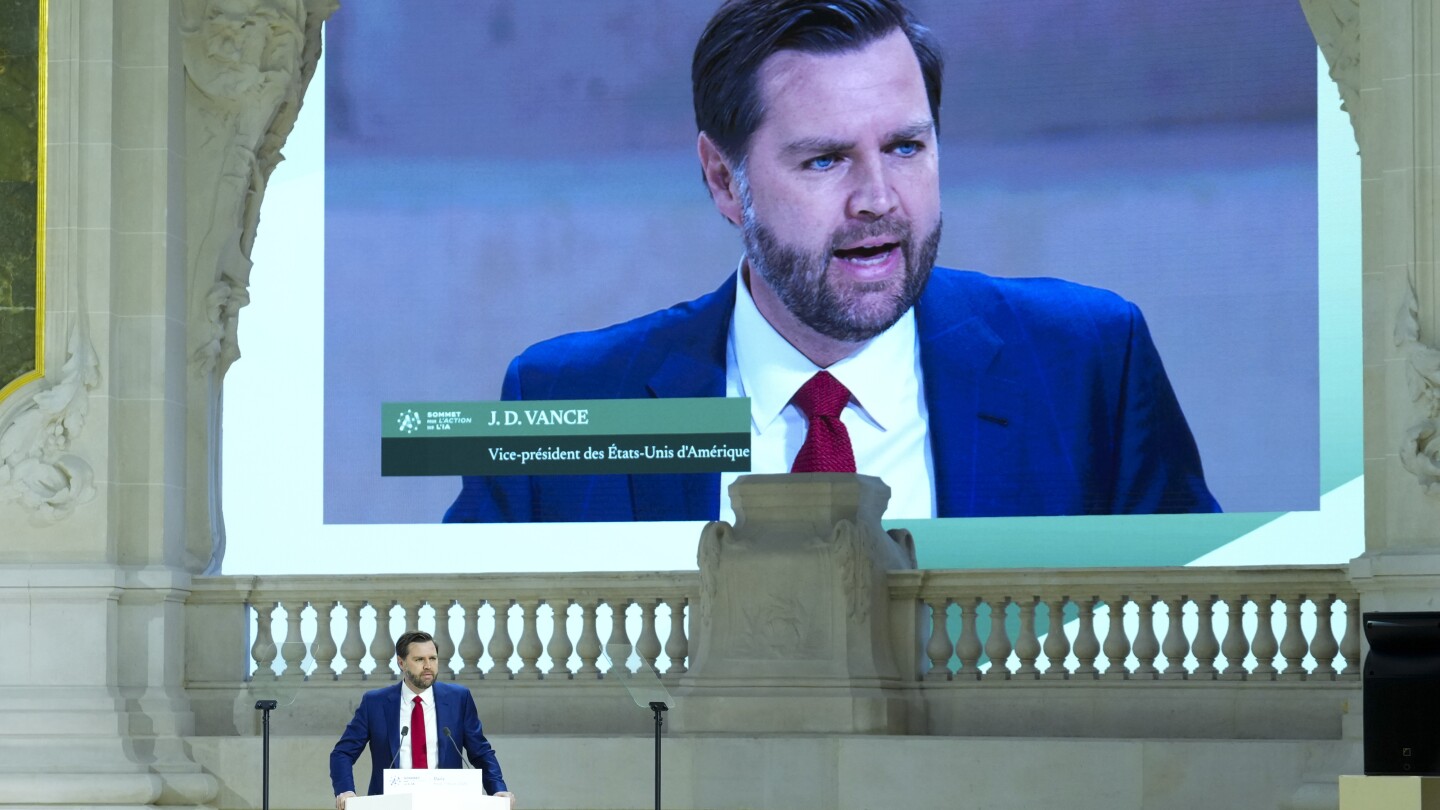Vance’s Bold Vision for AI Deregulation
In his recent inaugural foreign policy speech, J.D. Vance articulated a bold vision for the future of artificial intelligence (AI) through an “America First” lens. This approach not only seeks to redefine the regulatory landscape but also challenges existing paradigms surrounding technology and its implications for national interests. Vance’s perspective ignites a critical dialogue about how the United States can foster innovation while balancing the need for regulation.
The ‘America First’ Philosophy in AI Deregulation
Vance’s “America First” philosophy emphasizes prioritizing national interests over global considerations. This approach advocates for deregulating AI to stimulate economic growth, enhance national security, and maintain the United States’ competitive edge in the technology sector. By reducing bureaucratic red tape, Vance believes that innovation can thrive, leading to a more robust economy and job creation.
During his speech, Vance underscored several key points:
- Innovation over Regulation: Vance argued that excessive regulation stifles creativity and hinders progress in AI development. He posits that a deregulated environment could accelerate breakthroughs in AI technology.
- National Security: With the rapid advancement of AI, Vance expressed concerns about the potential for adversarial nations to outpace the U.S. in technology. He believes that deregulating AI could allow for quicker advancements that bolster national defense capabilities.
- Job Creation: By fostering a more conducive environment for tech startups and innovation, Vance argues that deregulation could lead to job creation in emerging industries, particularly in AI and tech-related fields.
Challenging Existing Paradigms
Vance’s bold vision raises critical questions about the balance between innovation and regulation. Traditionally, the narrative surrounding AI has focused on the potential risks and ethical implications of unchecked technological growth. However, Vance’s perspective encourages a reevaluation of these concerns, suggesting that the benefits of deregulation may outweigh the risks if managed appropriately.
One of the central challenges is identifying what constitutes “excessive regulation.” Critics of deregulation argue that without proper oversight, society could face significant risks, including job displacement, privacy violations, and ethical dilemmas surrounding AI decision-making. Vance acknowledges these concerns but emphasizes that a balanced approach is necessary—one that promotes innovation while ensuring safety and ethical standards.
The Role of Collaboration
In navigating AI deregulation, collaboration between the government, private sector, and academia will be crucial. Vance advocates for a framework that incentivizes public-private partnerships to drive innovation while safeguarding public interests. This collaborative approach can help ensure that AI technologies are developed responsibly and ethically.
Moreover, Vance’s vision underscores the importance of involving various stakeholders in the conversation about AI regulation. By engaging with technologists, ethicists, and policymakers, the U.S. can create a more comprehensive and informed regulatory framework that reflects the complexities of AI technology.
Potential Benefits of AI Deregulation
Adopting an “America First” approach to AI deregulation could yield several potential benefits:
- Accelerated Technological Advancements: With fewer regulatory barriers, companies can move more swiftly in developing and deploying innovative AI solutions.
- Enhanced Global Competitiveness: A deregulated environment may enable U.S. companies to compete more effectively on the global stage, particularly against nations with less stringent regulations.
- Increased Investment: A favorable regulatory climate could attract both domestic and foreign investments in the AI sector, fueling economic growth.
Addressing Ethical Considerations
While Vance promotes deregulation, he also acknowledges the ethical considerations surrounding AI. Issues such as bias in algorithms, data privacy, and the potential for job displacement cannot be ignored. Therefore, the challenge lies in crafting regulations that protect citizens while fostering innovation.
To address these ethical concerns, Vance proposes establishing industry standards and best practices that companies can voluntarily adopt. This self-regulatory approach could mitigate risks associated with AI without stifling innovation. By encouraging companies to prioritize ethical considerations in their AI development processes, Vance aims to create a culture of responsibility within the tech industry.
The Global Context of AI Deregulation
As the U.S. navigates its AI deregulation strategy, it must also consider the global context. Other nations, particularly China, are rapidly advancing in AI technologies, often with fewer regulatory constraints. This competitive landscape necessitates a proactive approach from the U.S. to ensure it remains a leader in AI innovation.
Vance’s “America First” vision not only seeks to bolster the U.S. economy but also aims to secure its position as a global leader in technology. By embracing deregulation, the U.S. can foster an environment conducive to innovation, ultimately benefiting its citizens and ensuring national security.
Conclusion: A Call to Action
J.D. Vance’s inaugural foreign policy speech presents a compelling vision for AI deregulation through an “America First” lens. His arguments challenge the status quo and ignite discussions about the future of technology and national interests. As the U.S. contemplates its regulatory approach to AI, it must strike a delicate balance between fostering innovation and ensuring ethical standards are met.
Ultimately, Vance’s bold vision serves as a call to action for policymakers, technologists, and citizens alike. By engaging in thoughtful dialogue and collaboration, the U.S. can navigate the complexities of AI deregulation and emerge as a leader in technological innovation, all while safeguarding the interests of its people. The future of AI is not just about technology; it’s about how that technology aligns with the values and priorities of the nation.
See more BBC Express News

